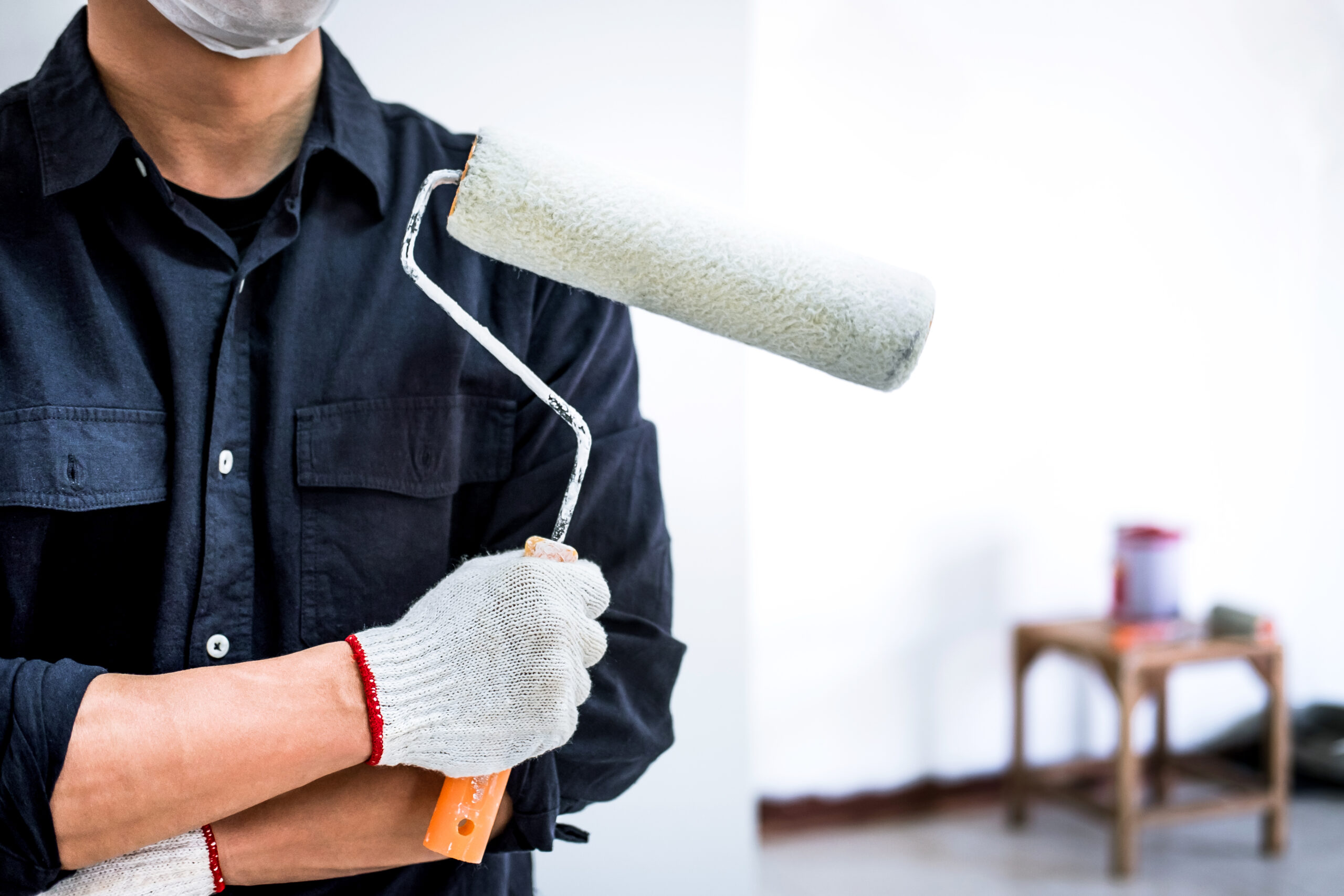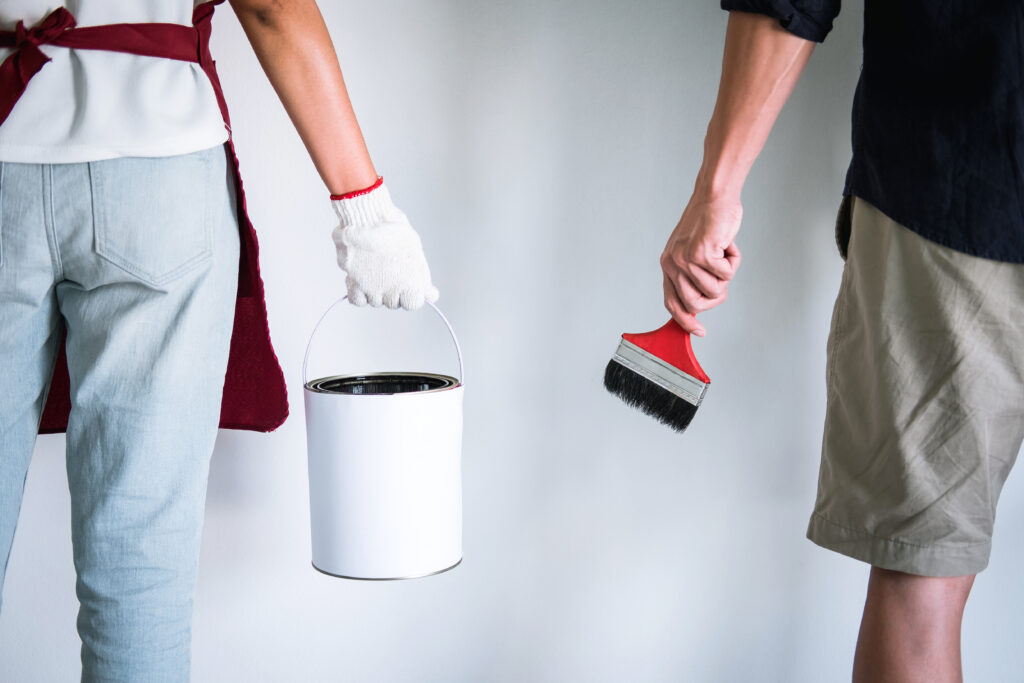
Painting Over Wallpaper: Is It a Good Idea?
March 3, 2024 / Guilds Painting
The decision to paint over wallpaper polarizes homeowners and design professionals. While stripping old wallpaper is often the go-to strategy, there are scenarios where painting over it emerges as a practical alternative. This guide critically examines the merits and drawbacks of painting over wallpaper, alongside vital preparation strategies, to aid in determining whether this method suits your renovation endeavors.
When Is Painting Over Wallpaper Advised?
Painting over wallpaper is a consideration driven by specific circumstances, such as when wallpaper removal proves too challenging or could potentially harm plaster walls to which it’s adhered.
The Benefits of Painting Over Wallpaper
Efficiency in Time and Cost
Opting to paint over wallpaper can lead to significant savings in time and effort, particularly in spaces where wallpaper removal is anticipated to be cumbersome and expensive.
Preserving Wall Integrity
In homes of a certain age, wallpaper removal might jeopardize the wall’s condition. Opting to paint offers a revitalizing look while safeguarding the wall’s structural integrity.

The Drawbacks of Painting Over Wallpaper
Risk of Imperfections
A notable concern with painting over wallpaper is the possibility of seams, textures, or underlying patterns becoming evident through the paint, compromising the finish.
Questions About Durability
The longevity of painting over wallpaper is uncertain. Issues such as peeling edges or moisture intrusion can cause bubbling and peeling, detracting from the paint’s durability.
Preparation Tips for Painting Over Wallpaper
Essential Surface Prep
Achieving a successful painting outcome hinges on meticulous surface preparation. This involves cleaning the wallpaper, securing any loose sections, and applying a primer specifically designed for wallpapered surfaces.
Tip: Utilize an oil-based or shellac-based primer to avert the dissolution of wallpaper adhesive and to conceal potential stains.
Seam and Edge Sealing
To prevent peeling, apply a slender bead of clear caulk along the wallpaper seams and edges, ensuring a smoother painting surface.
Tip: Flatten the caulk with a damp sponge or finger to achieve a seamless appearance.

To Paint or Not to Paint Over Wallpaper?
Evaluating Your Circumstances
Reflect on the wallpaper’s condition, the room’s humidity level, and your long-term vision for the area. If the wallpaper is in prime condition and a swift makeover is desired, painting could be a feasible choice.
Seeking Expert Advice
If uncertain, a consultation with a professional painter or interior designer can offer tailored recommendations based on your specific scenario and wallpaper type.
Conclusion
Painting over wallpaper presents a viable, cost-effective method for updating your space under appropriate conditions. Nonetheless, it’s crucial to balance the advantages against potential drawbacks and commit to thorough preparation. By grasping the intricacies of painting over wallpaper and adhering to best practices, you can make a well-informed decision that aligns with your renovation aspirations, ensuring a satisfactory transformation of your home’s interior.
Need A Free Estimate?
Looking for a free estimate? Don’t delay, contact Guilds Painting now and let us start transforming your spaces today!
Need A Free Estimate?
Looking for a free estimate? Don’t delay, contact Guilds Painting now and let us start transforming your spaces today!



